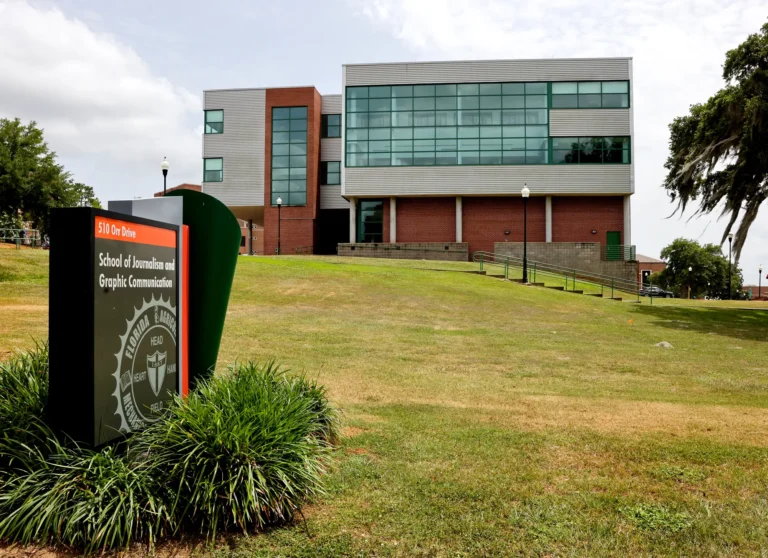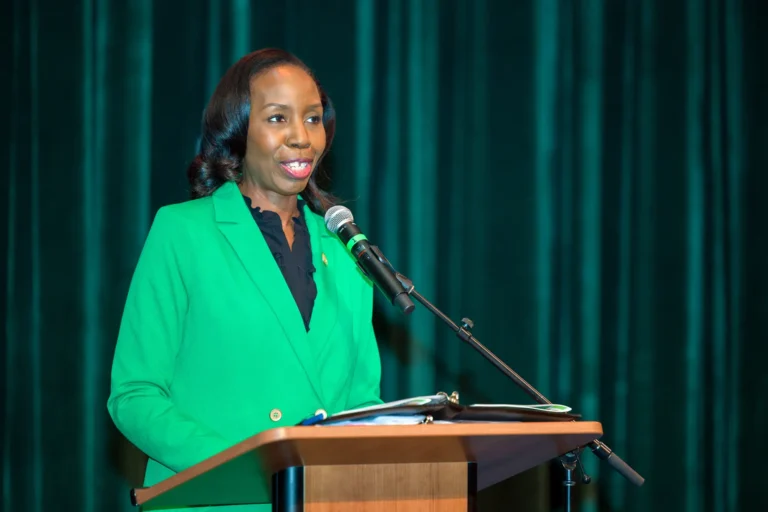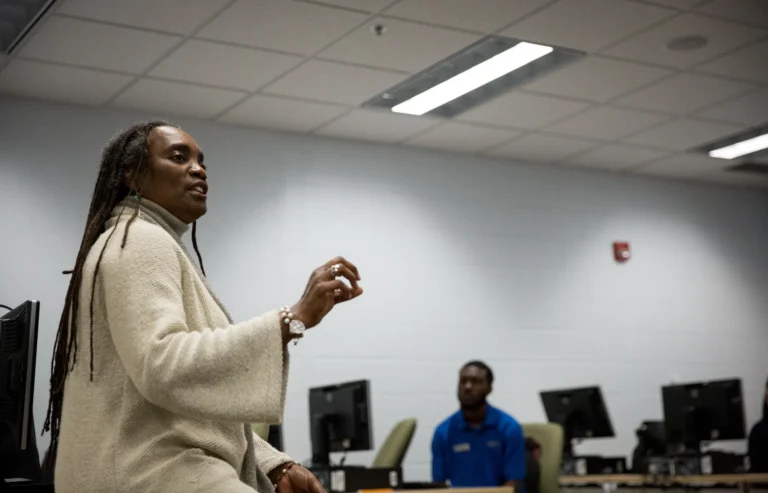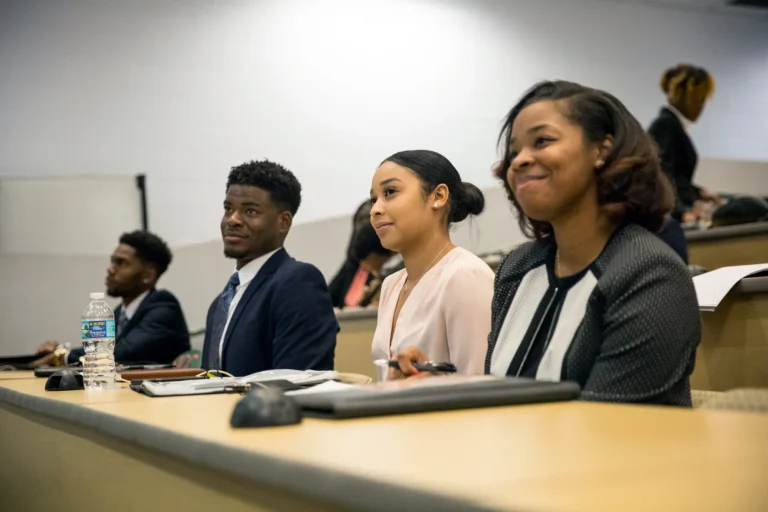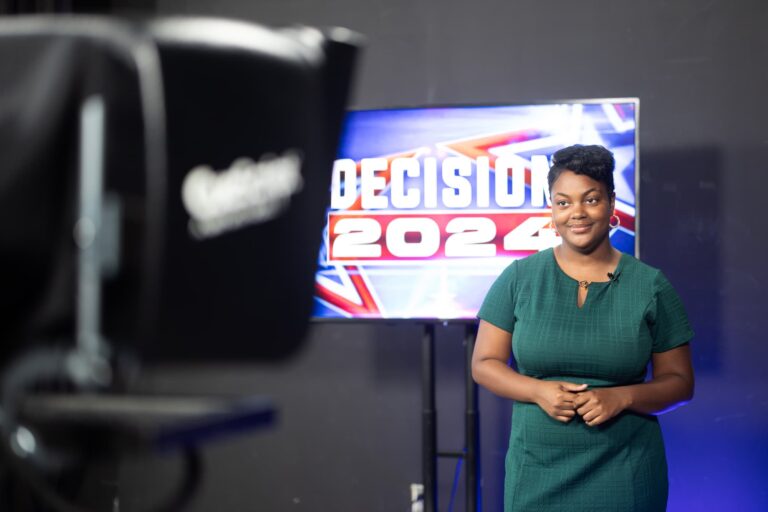
Executive Summary
The School of Journalism & Graphic Communication (SJGC) provides students with academic support and services to promote student learning and to ensure timely completion of their program of study. The SJGC has 13 full-time faculty members who provide instruction and advising, two (2) full-time advisors, and an Office of Career Success (OCS) to assist students with finding internships and career opportunities. The University also provides student academic support services (TRIO Support Services, CeDar, Writing Resource Center, Tutoring, Mental Health Counseling Services, Financial Counseling Services, Career Center, Living Learning Community Program, and Center for Academic Support Services) to journalism and public relations students that further promote learning to ensure timely completion of students’ degrees in journalism and public relations.
Please respond to each of the following instructions:
- Complete Table 9, “Student Aid.”
Table 9. Student Aid
(Scroll right to view entire table.)
| Year | Total number of scholarship dollars controlled by the institution* | Number of students receiving scholarships controlled by the institution | Median individual scholarship dollars from funds controlled by the institution | Total Amount of dollars from funds controlled by the unit* | Number of students receiving scholarships controlled by the unit | Median individual scholarship from funds controlled by the unit |
|---|---|---|---|---|---|---|
| 2022-2023 | 3,374,700.06 | 497 | 6,790 | 300,326 | 67 | 2,147 |
| 2023-2024 | 2,186,026.00 | 281 | 7,779 | 492,463 | 107 | 5,000 |
**Total amount of dollars from funds controlled by the unit reflects various scholarship funds.
Graduate Assistantships or Work-study Appointments
| Year | Number of students holding appointments | Range of stipends |
|---|---|---|
| 2023-2024 | 6 | $1,500 |
| 2022-2023 | 2 | $1,500 |
| 2021-2022 | 4 | $1,500 |
In addition to scholarships provided by the unit and the institution, the SJGC dean maintains a special assistance hardship fund for students who have exhausted all other funding sources and are in jeopardy of not completing their degree plans. To apply students, submit a written request for financial assistance, their needs are evaluated, which informs the amount of funds and to whom those funds are disbursed. Students’ academic records are a critical component of the evaluation for these funds.
- Describe how the unit informs students of the requirements of the degree and the major, advises them on effective and timely ways to meet the requirements, and monitors their compliance with the requirements. Provide digital files of advising guides, manuals, newsletters, or other internal communication with students. Describe availability and accessibility of faculty to students.
The SJGC provides detailed curriculum guides for journalism and public relations, which are archived and updated regularly. These guides are essential resources for students admitted from Fall 2020 to Summer 2024, with newer guides available from academic advisors for students admitted thereafter. The guides outline the necessary courses, graduation procedures, and specific requirements such as the Civic Literacy Graduation Requirement, which mandates competency in civic literacy for students entering from 2018-2019 onwards. Students are also informed of degree requirements at orientations, university advisement/enrollment days and in meetings with the division directors and deans.
The SJGC employs a structured advising system where students can book appointments with academic advisors through the SJGC Connect page. Advisors are available by appointment on specified days, with walk-in hours on Wednesdays. The advising syllabus is designed to help students understand their majors, make strategic educational decisions, and promote personal development. It requires students to bring essential documents like unofficial transcripts and curriculum guides to advising sessions.
During the 2020-2021 academic year, the unit established a Student Enrollment Station, equipped with two computers, in the advisement office to assist SJGC students with enrolling in classes while onsite after meeting with their advisers.
Before August 2023, advising was centralized with an advisor assigned to the school, and units had no direct input in the model. The University collected survey data, but it was for the institution as a whole, not specifically for SJGC. In 2023, advising was decentralized, and a full-time academic coordinator was hired for the unit.
Currently, the SJGC academic advisement team consists of two trained, full-time academic advisors and a full-time academic coordinator. When needed, the unit’s division director is available to assist students with issues beyond the advisement team’s authority. Decentralization has allowed the unit to better track students, develop initiatives to support the advising process, and enhance communication with students. For instance, there is now more signage about advising within the School and a QR code for students to scan for additional information. The unit also created a school-wide survey to gather feedback on students’ advising experiences. Advisors have become a critical part of the school, providing a more cohesive and effective interaction with students.
The advisement team employs a robust course progression monitoring tool known as CIVITAS. CIVITAS allows advisors to view reports on students’ grades in all assignments, projects and exams and employ early special needs intervention when students appear to fall behind or fall into jeopardy due to negative grades.
To also facilitate advisement, the SJGC advising team provides students with a syllabus that outlines expectations for the academic year. This guide provides a timeline for tasks and reminders.
Academic Advising Syllabus and Calendar
| Month | Activities |
|---|---|
| August-September | Meet with your new adviser at the scheduled session during Orientation. Returning students: Use this time to reconnect with your adviser. |
| Talk to your adviser about the experiences you are having in class. | |
| Be aware of drop/add dates and other deadlines. | |
| October-November | Meet with your adviser to plan for the spring semester. |
| Meet with your adviser if you receive academic alerts. | |
| Seniors: Complete the online graduation application and advising survey. | |
| Register during your assigned registration time. | |
| January | Welcome back to the spring semester! |
| Contact your adviser if you have questions or concerns about your past fall semester grades or if you need to change your spring class schedule. | |
| March | Meet with your adviser for annual planning to review your academic goals and make a plan for the coming year. |
| First and/or second year students with fewer than 60 credits must meet with their adviser before registering. | |
| Register during your assigned registration time. | |
| April-May | Seniors: Complete the advising survey if you have not done so already. |
| Returning students: Register for fall semester classes before leaving campus in May. |
Early in the fall semester, SJGC conducts Academic Success Workshops to equip students with essential tools and insights for academic achievement and beyond. Each one-hour session covers academic advising, attendance requirements, transfer credits, capstone facts, the Florda Shines process and FERPA. Florida Shines is a program that allows students to take classes away from their home institution and receive credit for the course. The Academic Programs Coordinator and advisors also dive into strategies for a successful academic journey. Those topics include:
- Motivation: Staying motivated throughout your academic journey.
- Navigating Your Major: Strategies for success in your chosen field.
- Studying: Effective study techniques for coursework excellence.
- Prioritization: Mastering task and responsibility prioritization.
- Time Management: Developing skills to maximize productivity.
- Stress Management: Techniques to manage and reduce stress.
- Exposure to Campus: Exploring campus resources and opportunities.
- Mindset: Cultivating a growth mindset for personal and academic growth.
- Working with Others: Enhancing collaborative skills for group projects and teamwork.
Link to Newsletter to Students
From the moment they arrive on campus, SJGC First Time in College (FTIC) freshman students who qualify are engaged in the unit’s Living Learning Community (LLC) program. This successful program allows students to share all aspects of their learning experiences with each other during the first two full semesters of their academic careers. The students share on-campus living spaces and regularly engage in media workshops relevant to their academic careers. All such activities are implemented and supervised by a designated LLC liaison (Artency Jean) as prescribed by the university-wide LLC program at-large. Activities have covered a variety of topics such as learning about podcasting; doing a mock newscast; using technology for immersive journaling; starting a LinkedIn page; building a resume; and preparing for Capstone.
In accordance with the FAMU Faculty Handbook, full-time faculty are expected to include their office hours in the course syllabus and post their hours in a conspicuous place in order for students to have access to their professors, outside of class times. Adjuncts may arrange online communication with students at a designated time. Frequently, faculty meet with students beyond their posted hours to help students with assignments or to give advice.
- Describe the unit’s process for evaluating and counseling services. Include measurements of the accuracy of academic advising, student, and faculty opinion of the of quality of advising or other indices of the effectiveness of advising. Discuss the results of these assessments, any changes or adjustments made because of the finding.
The evaluation of advising services is crucial for maintaining their effectiveness. The CIVITAS platform that advisers use to monitor student progression also provides insights about the advisors’ engagement with students. The tool tracks interactions, appointment modalities (in-person, virtual and phone) and topics discussed. This information helps the advising team, the unit and the University provide the support students need throughout their college experience.
In addition to the advising data, SJGC uses various methods to assess the quality of its advising services, including assessing the accuracy of academic advising, reviewing exit surveys, and gathering student and faculty opinions. Such evaluations help gauge satisfaction and identify areas for improvement.
Based on assessments, adjustments to advising services may include changes in advising hours, the introduction of new tools for scheduling appointments, or updates to curriculum guides to reflect current academic and industry standards. Continuous feedback from students and faculty helps the SJGC refine its advising processes to better meet the needs of its students.
The SJGC ensures that students comply with academic requirements by maintaining a detailed checklist and procedures for graduation. This includes forms for changing majors, requesting excused absences, and filing grade grievances. Advisors are assigned based on the alphabetical order of student surnames, ensuring personalized attention.
- Describe student professional organizations or other extracurricular activities and opportunities provided by the unit or the institution that are relevant to the curriculum and develop students’ professional and intellectual abilities and interests. Do not duplicate information already included in Standard 2 (Curriculum and Instruction).
The school has active student chapters of three professional organizations: National Association of Black Journalists (NABJ), Society of Professional Journalists (SPJ) and Public Relations Student Society of America (PRSSA). All chapters have a faculty and/or staff advisor who guides extracurricular activities, service projects and collaborations. Annually, the unit provides financial support to students attending the national conventions of each professional group.
FAMU NABJ (FABJ)
FABJ is dedicated to inspiring students to pursue journalism careers. This chapter operates under the auspices of the National Association of Black Journalists (NABJ), the largest organization of journalists of color in the United States. Members harness various resources to motivate and guide those interested in mass media careers. FABJ produces various events throughout the academic year for networking, training, and raising awareness about journalism. Recent workshops have focused on beat writing, TV news scriptwriting and resume reviews. The student chapter regularly engages alumni to speak with SJGC students about their career experiences and to build a workforce community. FABJ students also attend the annual national NABJ convention for professional development.
FAMU SPJ
SPJ is dedicated to improving and protecting journalism. It operates under the guidance of the nation’s most extensive journalism organization, which is committed to encouraging the free practice of journalism and the free flow of information, essential for a well-informed public. In addition to interest meetings, the chapter conducts professional development forums like “Women in Journalism” with Washington Correspondent Tia Mitchell, CNN News Source Content Producer Ila Wilborn and CBS News Broadcast Associate Diasha Henley. During the 2024 Homecoming Grads Are Back program, chapter leaders also hosted the Fireside Chat with the Dean and Laura J. Downey, WebMD Executive Editor and SPJ President – Georgia.
PRSSA at FAMU
The PRSSA chapter is an organization tailored for students majoring in public relations. Its mission is to advance the public relations profession by nurturing the next generation of professionals. FAMU PRSSA students have attended the annual PRSSA meetings for the past two years. These opportunities allow them to develop professionally and intellectually by attending workshops to enhance their knowledge and skills in PR and networking with PR professionals. FAMU PRSSA leadership (presidents and vice presidents) have attended the PRSSA Leadership Summit for the past two years, where they learned to utilize PRSSA resources to develop the FAMU chapter. In addition, FAMU PRSSA has hosted awareness campaigns through collaboration with non-profits, workshops with PR professionals, and a scholarship competition featuring creative briefs to promote responsible tourism and protect the beach communities in Florida.
SJGC + IPREX (The Global PR and Communication Network)
In partnership with the Florida PR agency Salter Mitchell and IPREX (The Global PR and Communication Network), SJGC is introducing a new cohort program for the 2024-2025 academic year. This program is designed for junior and senior public relations students to establish connections with PR, communications, and marketing agencies worldwide. Participants will benefit from training sessions, roundtable meetings with industry professionals, mentorship, internships, and conferences. With more than 1,100 communications professionals in more than 100 markets globally, IPREX members can engage with and recruit diverse talent for internships and full-time positions through the SJGC program.
SJGC Writing Lab (The Writer’s Block)
SJGC implemented a total immersion writing lab designed to improve the written communication skills of students. The lab not only targets students who may have writing deficiencies, it enhances opportunities for all students to set themselves apart with skills of excellence in journalism, public relations, graphic design and all aspects of media communication and academic compositions. A faculty member, along with peer tutors, staffs the lab Monday and Wednesday (4:00-6:30 p.m.) and Tuesday and Thursday (1:00-6 p.m.).
Learning Centers
SJGC students can also access tutoring services in-person at various Learning Centers around campus, or virtually using Tutor Ocean, an online platform that allows students to book sessions with tutors and subject matter experts. The Learning Centers provide academic help to all students in the areas of English, Math, and Science.
- Describe the unit’s career counseling and placement strategy for assistance in students’ searches for employment. List placement statistics for the three most recent years before the self-study year for which accurate information is available.
SJGC maintains a robust internship and job placement effort for the unit’s students. This effort is guided by a full-time internship coordinator who regularly invites professional media, public relations, and graphic design companies to the school to meet and converse with students about internship and job opportunities. During such recruitment visits, representatives of such companies are availed interview rooms where employers meet one-on-one with students. In most cases, SJGC students are hired either as interns or permanent media professionals as a direct result of this effort.
SJGC job placement strategies also focus on the following:
- Networking: Encouraging students to build and maintain relationships with industry professionals through events, internships, and alumni networks.
- Job Preparation: Conducting resume and cover letter reviews, mock interviews, and job fair coaching.
- In-Person and Online Presence: Advising students to maintain a professional presence on platforms like LinkedIn and when meeting potential employers.
- Tailored Job Searches: Assisting students in identifying job opportunities that align with their skills and career goals.
- Skill Development: Offering workshops and courses to develop both hard and soft skills relevant to the industry.
- Company Partnerships: Establishing partnerships with companies for direct access to students, exclusive job postings and recruitment events.
Graduates and Known Status
| Year | Graduates | Known status | Known Percent | Placement at Graduation |
|---|---|---|---|---|
| 2020-2021 | 98 | 94 | 96% | 29% |
| 2021-2022 | 135 | 103 | 76% | 22% |
| 2022-2023 | 140 | 111 | 79% | 29% |
Link for 2021 Graduates and Their Job Placement.
Obtaining feedback from employers and students about their workplace experiences and practices helps to inform the school’s career counseling and job placement efforts.
During the Fall 2023 semester, the SJGC Office of Career Success (OCS) launched its employer survey to collect information from the SJGC Grads Are Back Career Fair employer participants. Out of 25 career fair participants, 18 responded to the survey. The main purpose of the survey was not only to collect basic, day-of-event information, but to answer four major questions: Which companies are recruiting our students, are they being recruited for permanent employment or for internships, which major(s) are employers most interested in hiring, and how much are the employers paying?
According to the survey results, companies such as Bloomberg News, The Zimmerman Agency, Paramount, Tallahassee Democrat, and Gray Television (WCTV) to name a few participated in the career fair. In addition to the participating companies, three graduate programs participated in the career fair to recruit SJGC students into their graduate programs. The three schools were Columbia University, Florida State University, and Florida A&M University.
Other survey trends/key findings revealed that 56% of career fair participants were there to recruit interns only, while 33% were there to recruit both interns and permanent employees, and 11% were there to recruit employees only. When career fair participants were asked which major(s) they were there to recruit, 78% said public relations, 61% said broadcast journalism, and 44% said graphic design.
Lastly, career fair participants were also asked about salary/pay-per-hour. Regarding internships, 38% of employers said they pay $15-$19 per hour, and 23% said their company offers stipends. As for the permanent employment salary, the lowest amount was hourly pay, which totaled $36,480 per year, and the highest pay was $72,000 per year.
During the Spring 2024 semester, the SJGC Office of Career Success (OCS) launched its internship survey to collect information from current SJGC students about their internship experiences. OCS was able to collect a survey sample of 56 respondents. The main purpose of the survey was to collect data for the following questions: Where are SJGC students interning, how much are they earning and how many internships are they experiencing? Of the 56 respondents, 43% majored in broadcast journalism, 30% graphic design, and 26% public relations, with 80% of respondents classifying as seniors.
Regarding internships, 37% of respondents said they have experienced one internship, 28% said they have experienced two internships, 7% said they have experienced three, 4% said four or more, and 24% said they have not interned yet. As for the modality of the internships, 70% of respondents experienced in-person internships, while 48% did remote internships and 9% did hybrid internships. When asked how much they earned on their internships, 39% of respondents said their internships were unpaid, 4% said they earned $11-$13 per hour, 9% said $14-$16 per hour, 17% said they earned $17-$19 per hour, 9% said they earned $20-$22 per hour, 13% said they earned $23-$25 per hour, and 17% said they received a stipend.
When asked how confident you were in performing tasks in your internship, based on what you have learned in the classroom, around 90% of respondents marked confident, very confident, or extremely confident. Survey results show respondents interned at the following places to name a few: USA Today, SET Magazine, Disney, NBC 5, Fifth Season, AEG, and ABC News.
Modality and Methodology for Surveys
Employer Survey Summary – Fall 2023
Background/Survey Purpose: The purpose of the survey was to collect general information and to answer a few important questions.
Survey Timeframe: Oct. 17-26, 2023
Number of Respondents: 18
Mode of Outreach/Distribution: Email
Internship Survey Summary – Spring 2024 to Summer 2024
Background/Survey Purpose: The purpose of the survey was to gain general knowledge about how SJGC students are doing in their internship experiences.
Survey Timeframe: Spring 2024 to Summer 2024
Number of Respondents: 56
Mode of Outreach/Distribution: Email, social media (QR Code), Canvas, word of mouth
Link for the SJGC Internship Report
- Discuss the processes in place to collect, maintain and analyze enrollment, retention, and graduation rates within the major, and provide comparison to the university’s rates. Discuss the findings of the analysis.
The academic unit utilizes the University’s Institutional Research & Analytics Dashboard for data related to enrollment, graduation, and retention of students. This data is available for each college and school. The dashboard provides insights and graphics based on historical performance and key university metrics. The division director and the staff member who serves as the school’s recruiter also sit on the University Recruitment Data Council/Admissions. The Council meets bi-monthly during the fall and spring semester and monthly during the summer term. Information from these meetings is shared in SJGC faculty division meetings and with the school’s leadership team.
The Council consists of the vice president of student affairs, the associate vice president for enrollment management, director of admissions, senior associate director of undergraduate admissions, recruiters at the university level for both first-time-in-college students and transfer students, recruiters from each college, some individual academic programs, recruiters from office military and veteran affairs (AROTC), a representative from the housing department, financial aid, freshman studies, testing department, university communication, living learning community, summer bridge, university’s office of campus tours and orientation, a representative for virtual tours, transfer academic services, and the honors program. To aid recruitment, the university participates in the Ignite program, which guarantees admission to students who earn an Associate of Arts degree from a Florida College Systems institution.
The Council discusses the Presidential Recruitment tour to key areas within Florida and Georgia. Every academic year the University leads recruitment efforts in South Florida (Miami-Dade and Broward County), Central Florida (Tampa, St. Pete, and Orlando), North Florida (Jacksonville), Atlanta and Macon, Georgia. In 2022 recruiters traveled to Alabama (Mobile and Birmingham). Local recruitment at partnering institutions through the Ignite program, particularly the Tallahassee State College for Ignite Day at TSC, formally Tallahassee Community College, is also included.
The Council also discusses and plans the University campus-wide events such as Fall Preview, Spring Preview, single-day college fair and campus tours held during the fall and spring semester. Under the guidance of the Office of Campus Tours and Orientation, recruiters coordinate participation in Summer, Fall and Spring orientations. These efforts are to guide students into the final stages ahead of the first day of classes.
SJGC uses the data gained from the recruitment trips to follow-up with prospective students about our program and to tailor our recruitment efforts for future events.
The dean and leadership team track current FTIC (first time in college), transfer and continuing student enrollment via weekly and monthly reports. The weekly SJGC enrollment reports inform administrators, advisors, and staff of the number of students per major. This data is crucial in determining the number of course sections needed per semester for pre-journalism, journalism, and public relations sequences. Those numbers typically range between 140 to 155 for pre-journalism. Public relations tend to fluctuate between 75 and 90; journalism ranges between 120 and 135. This data reflects a small growth in student population (about .06 percent).
Overall, the University’s enrollment, graduation and retention reports are instrumental for SJGC to effectively manage its resources and plan for the future. Such reports provide valuable insights into student trends, allowing the school to make data-driven decisions regarding course offerings, faculty allocation, and program development.
By tracking the number of course sections and major program enrollment, SJGC can ensure it meets student demand while maintaining optimal class sizes and faculty workloads. This information is particularly important given the school’s goal to increase student enrollment 20% by 2027, as its strategic plan outlines. The enrollment data helps identify which programs are growing or declining, enabling the school to adjust its recruitment strategies and allocate resources accordingly.
Moreover, analyzing enrollment patterns across different majors and course sections can reveal opportunities for curriculum enhancement or development of new programs to attract and retain students. In the context of FAMU’s overall enrollment trends, which show a 9.2% decrease over five years from 2017 to 2021, it is even more critical for SJGC to closely monitor its enrollment to ensure meeting growth targets and contributing positively to the University’s overall enrollment goals.
Link for the Institutional Research & Analytics Dashboard
Link for the University Enrollment Data from 2019 to 2023
